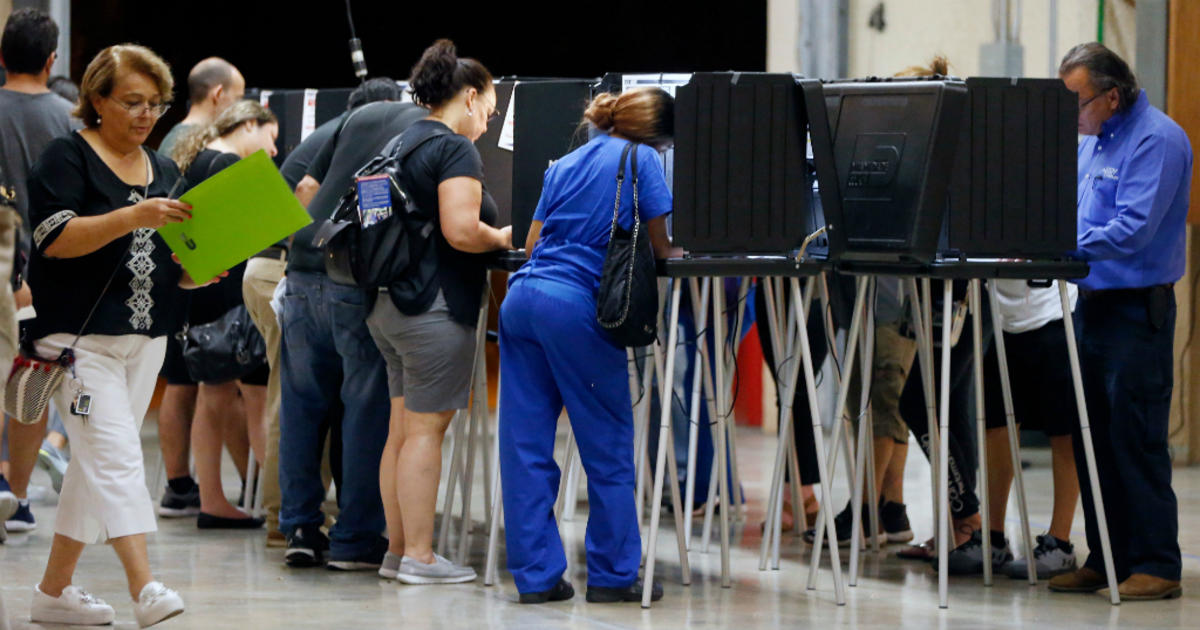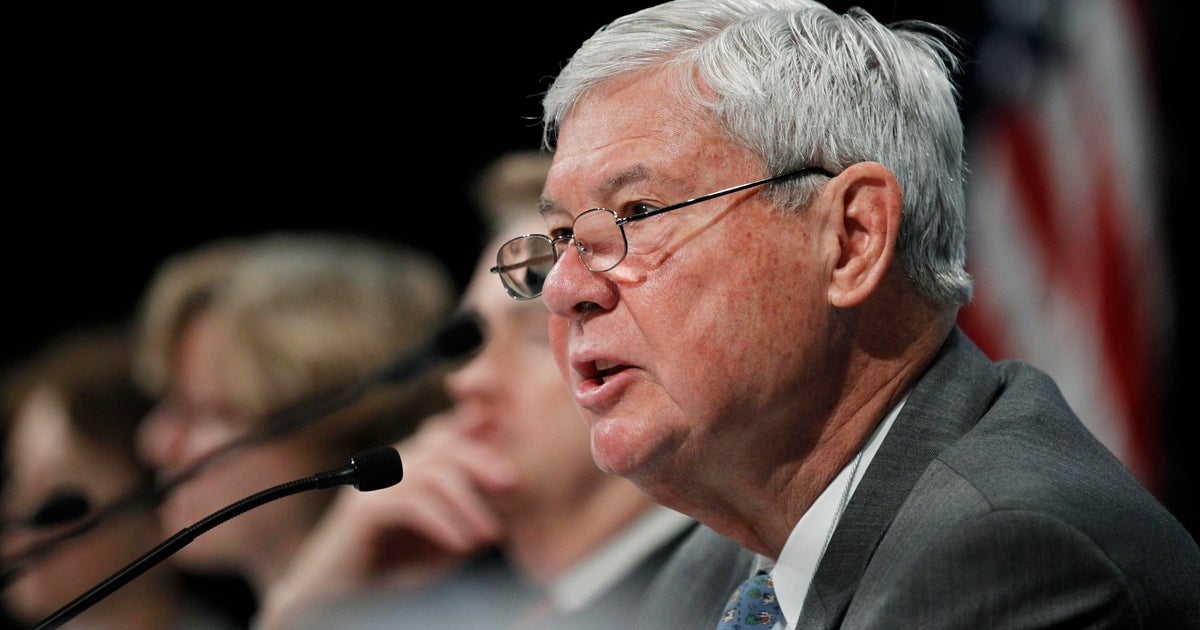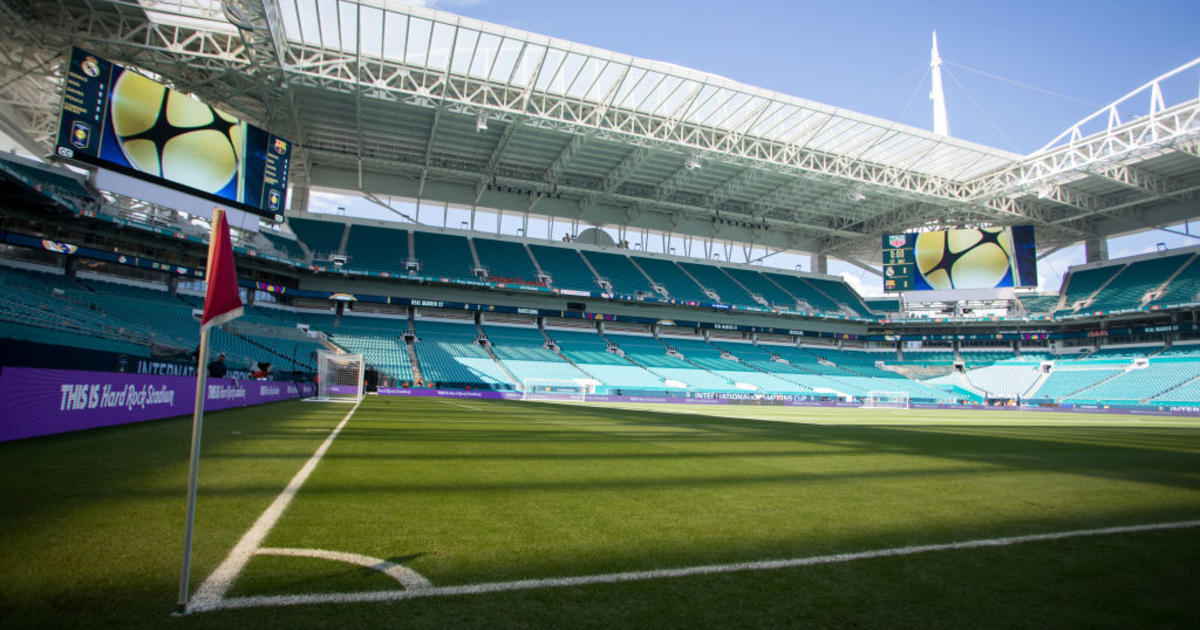Seminole Negotiations: Money, Exclusivity & Games
TALLAHASSEE (CBSMiami/NSF) - House and Senate leaders are waiting for Gov. Rick Scott to seal a deal with the Seminole Tribe before they finalize decisions about the future of gambling in Florida.
The governor is playing his cards close to his vest, and it's unclear whether he'll wrap up negotiations in time for the Legislature to ratify a new compact with the tribe before the legislative session ends May 2.
But the elements of any new deal between the state and the Seminole Tribe of Florida would center on three items --- the tribe's revenue to the state, the types of games the tribe is allowed to have and the tribe's rights to be the only gambling operators in the state to offer certain games, known as "exclusivity."
"If nothing's done, the tribe is going to lose their ability to operate the banked card games. That's a real issue for them and it certainly is leverage for the state of Florida," said Sen. Bill Galvano, R-Bradenton, one of the chief architects of the current, $1 billion, five-year deal with the Seminoles that sunsets on Aug. 1, 2015. "So the heart of the negotiations have to be the continuation of the card authorization, most likely an effort to have additional games at their facilities, and (the Seminoles) would have to couple that with a new, greater offer of dollars."
Because the complicated pact between the state and the tribe inked in 2010 already cleared up issues like lawsuits and smoking areas, Scott and the tribe are now "right at the heart of it: money, games and exclusivity," Galvano said.
Senate Gaming Committee Chairman Garrett Richter said Scott's aides asked him to hold off on a proposal (SPB 7052) he floated that, among other things, would allow for two casino resorts --- one in Miami-Dade County and one in Broward --- that could offer slots, roulette and craps. Opening even a single casino like the ones envisioned in Richter's bill would upset the current deal with the Seminoles and potentially undo a new agreement.
But Scott's office gave nothing away when asked to confirm what Richter said.
"Ultimately, it is up to the Senate on how and when they move their own bills. With the gaming compact set to expire in 2015, we will take the time needed to get the best deal for Floridians," Scott spokesman Frank Collins said in an e-mail Thursday.
Scott wants more money --- possibly double --- than the $1 billion over five years that the Seminoles agreed to in 2010. In return, he could offer again to allow the tribe to be the only entity allowed to operate banked table games. He could also add roulette and craps into the mix. And he could promise that the Seminoles wouldn't have to pay --- or could reduce their payments --- if anyone else is allowed to offer the games.
"The three elements of the negotiation are going to be continued exclusivity, potential expansion of product and revenue. And it will all kind of snuggle together at the end," Richter said. "I do believe that the governor is in search of more revenue for the state than we currently receive. How he negotiates and what he negotiates for more revenue is up to him."
In 2010, then-Gov. Charlie Crist and the tribe struck a deal, authorized by the Legislature, which gave the Seminoles a 20-year contract to operate slot machines along with exclusive rights to operate banked card games like blackjack and baccarat for five years. In exchange, the Seminoles agreed to give the state a minimum $1 billion over five years but can halt the payments if slot machines exist anywhere outside of Broward and Miami-Dade counties, excluding those operated by other tribes. The compact also allows the tribe to reduce its payments if slot machines are allowed at any facilities that weren't already operating in Broward or Miami-Dade, except for Hialeah Race Track, when the deal was signed.
The legislation authorizing the 2010 deal also required the Legislature's ratification for any future deals with the tribe, meaning Scott would have to deliver a proposal to legislators sometime before May 2 to get approval this year.
"I am very skeptical about that," Galvano said. "Last time we were handed a deal it took us two years to approve it. … It's a big issue that needs a lot of deliberation and is tied to policy way beyond just the four corners of the compact."
House Speaker Will Weatherford, R-Wesley Chapel, is insisting that his chamber will not pass any major gambling legislation unless negotiations between Scott and the tribe are finalized. The House Select Committee on Gaming unanimously approved an omnibus package on Wednesday that would open the door for slot machines in Palm Beach County and a casino hotel in downtown Miami as long as the expansions don't have an impact on the revenues the state gets from the tribe.
Richter said he bowed to Scott's request to postpone a vote on his proposal next week while the negotiations are underway.
"That compact has significant implications for the state of Florida, the exclusivity for the tribe and the revenue associated with that activity for the state," Richter, a Republican banker from Naples, said Thursday. "So it would seem that we're getting the cart out in front of the horse to a great degree. Initially I had no idea when the governor was going to negotiate. … But now that I know that they are actively negotiating, that gives me some more tangible information to say, OK, let's see where it goes."
The federal government will also have to sign off on whatever agreement Scott and the tribe reach. Under federal law, Indian tribes are allowed to have whatever type of gambling is authorized anywhere in the state. When voters allowed slot machines in Broward and Miami-Dade counties in 2008, that opened the door for the tribe to get banked card games because they are considered a similar class of gambling as slots under federal law.
Galvano said the feds would likely approve a new agreement in which the Seminoles paid more to the state even without additional extra games.
"When the federal government approved the consideration the first time, they understood that amount of money was just for five years. So now they're going to go back to the federal government and say we're going to pay x for five or 10 more years. I don't see why the feds wouldn't approve that," he said.
This report is by Dara Kam with The News Service of Florida.



